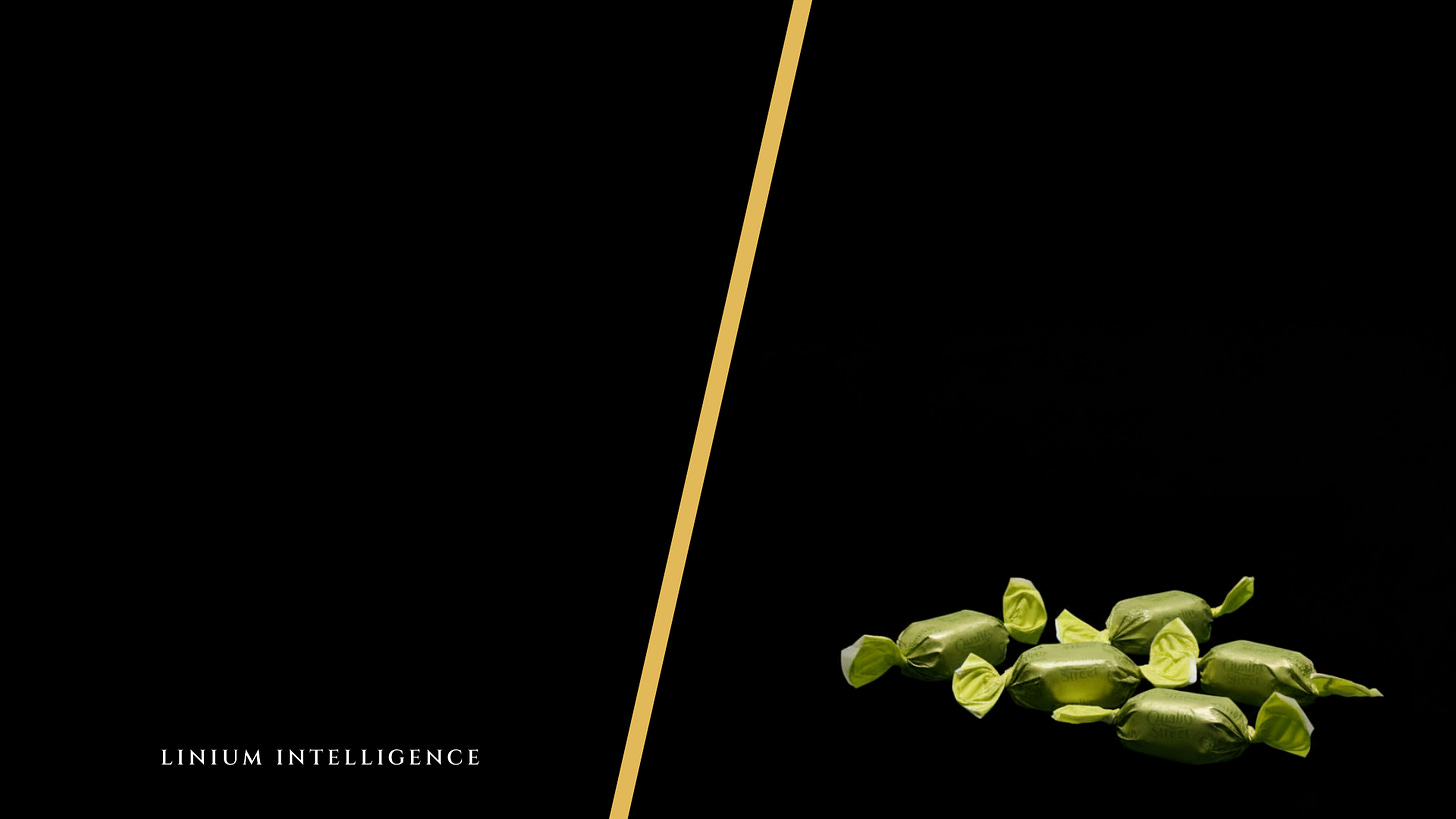Quality Street Launches A Mystery Sweet Flavor In The UK
Quality Street is adding intrigue to Britain’s chocolate aisles with the launch of its brand-new Mystery Sweet. The limited-edition flavour, available exclusively at John Lewis and Waitrose, has been teased with playful messaging asking consumers to guess the flavour. The move leans into the brand’s heritage of variety while inviting shoppers into an interactive guessing game.
The launch arrives amid a period of heightened innovation in the UK chocolate confectionery sector, with both established leaders and niche independents rolling out seasonal novelties, inventive flavour twists, and playful new formats. This year has already seen a wave of product launches: from Cadbury’s Biscoff bar and colour-changing packaging, to Lindt’s Pistachio and Shortbread-inspired creations, to KitKat’s citrus twist with its new Lemony Lime flavour. Niche players are also pushing boundaries—The Little House Dorset has rolled out an entire Lunar New Year bonbon range inspired by teas, nuts, and global culinary traditions, while Salt & Sugar Art Chocolate is experimenting with Amazonian spices.
Market Positioning And Brand Activity
Cadbury: Holding the largest presence in the UK market, Cadbury has recently expanded its portfolio with launches such as Twirl White Dipped, Dairy Milk Biscoff, colour-changing packaging, and a notable Easter egg collection.
Lindt: Positioned as a premium Swiss brand, with recent UK exclusives like Lindor Shortbread Truffles and Dubai-style flavours. Expansion includes new store openings, reinforcing its luxury credentials.
KitKat: Continues to experiment with flavours and formats, from Hazelnut and Salted Caramel sharing bars to the summery Lemony Lime bar.
Industry Trends And Themes
Limited-edition flavours: Scarcity is increasingly being used as a marketing lever, with brands encouraging urgency and collectability. Cadbury’s Twirl White Dipped and KitKat’s Gingerbread bar have both played into the appeal of short-run novelties that create conversation and drive impulse purchases.
Global culinary inspirations: International flavours are shaping the category, often tied to seasonal or cultural moments. Lindt and Marks & Spencer have leaned into the viral Dubai-style pistachio-kataifi trend, while Elate Chocolates & Dates crafted a Ramadan-exclusive flavour infused with saffron and pistachio. The Little House Dorset built an entire Lunar New Year range around cross-cultural references, with flavours spanning jasmine-infused mango to smoky Lapsang Souchong caramel. These launches reflect how brands are broadening their flavour palettes to resonate with globally minded consumers.
Nostalgia and retro flavours: Heritage-inspired treats are being reimagined with a modern twist. Lindt’s Shortbread Truffles combine Swiss chocolate with a staple of British tea-time culture, while Gnaw Chocolate’s “Pudfolio” celebrates classic desserts such as Cherry & Almond Tart and Spiced Apple Strudel. By evoking comfort and memory, these flavours offer both indulgence and familiarity.
Plant-based and free-from: Although still a relatively small segment of the UK chocolate confectionery market, plant-based launches continue to attract significant consumer interest. Galaxy has introduced a dairy-free hazelnut praline bar, while Nomo has expanded its vegan range with Salted Popcorn, Birthday Cake, and a snack-sized Cookie Dough variant.
Retailer exclusivity: Exclusive partnerships with leading grocers remain a strong feature of the market, reinforcing brand visibility and consumer loyalty. Lindt’s Shortbread Truffles debuted as a Tesco exclusive, Cadbury’s Marvellous Creations Easter egg was rolled out through Tesco channels, and Quality Street’s new Mystery Sweet is limited to John Lewis and Waitrose. These tie-ins give retailers a competitive edge while offering brands curated visibility.
Playful marketing and consumer engagement: Humour, gamification, and interactivity are becoming central to launch strategies. Quality Street’s campaign encourages consumers to solve the flavour mystery, while Aero transformed a factory mishap into a high-profile promotion by offering cash prizes for “bubble-less” bars. By blending product with entertainment, these campaigns transform confectionery from a moment of consumption into an ongoing conversation with consumers.
Expansion of DTC retail footprints: Physical retail remains a growth channel, particularly for premium positioning. Lindt opened new stores in London and the Cotswolds, Hotel Chocolat announced four new locations including York and Birmingham, and Läderach established a presence at St. Pancras International and Manchester’s Trafford Centre. Store rollouts reflect confidence in the premiumisation of confectionery, where consumers are willing to pay more for elevated experiences and curated assortments.

